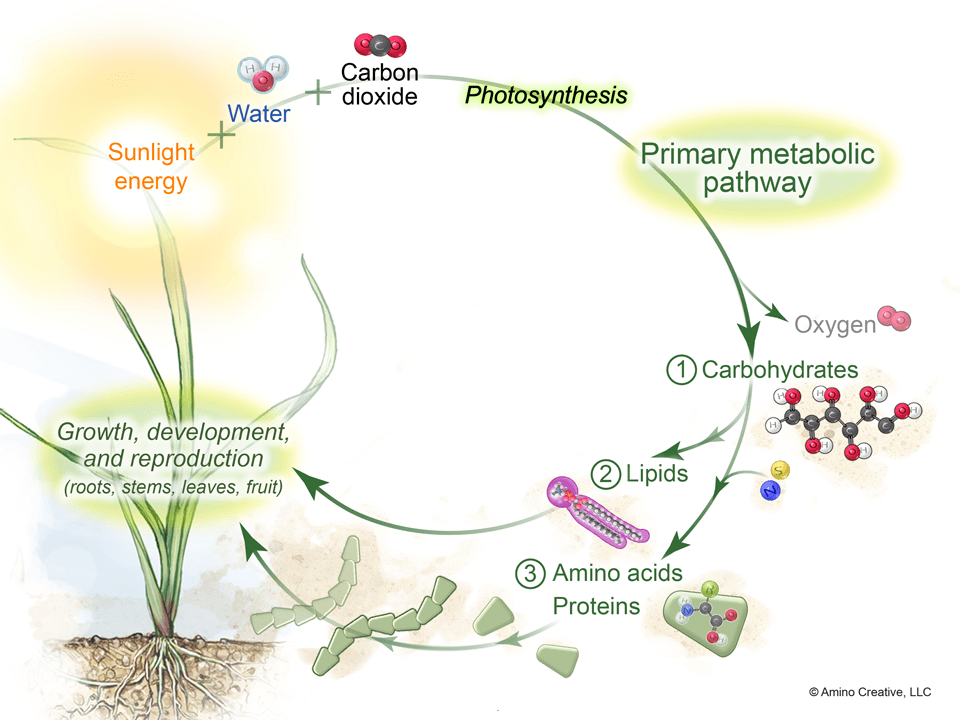Temperature is constantly influencing the value of your crop. It can be from springtime temperature fluctuations that influence bloom to high heat temperatures during summer days that stunt plant growth and lead to lack of quality. As hot summer days are underway in some areas and fast approaching in others, excessive heat can impede the respiration of the plant and reduce growth, yield and quality.
During periods of high heat, the ability of the plant to regulate stomatal tissue is critical to maintain optimum respiration. Stomatal tissue is regulated by potassium influx. Plants low in potassium will not be able to provide adequate regulation of stomatal tissue. This lack of potassium influx into stomatal tissue will reduce plant respiration, leading to reduced growth, yield, and quality of crop.

As can be seen from the diagram, plant respiration is the utilization of sunlight energy combined with carbon, hydrogen, and water to form carbohydrates in a process known as photosynthesis. Once plants have created the basic energy unit as a carbohydrate, the process continues as plants combine mineral elements to form amino acids, proteins, roots, leaves and flowers. Plant respiration is driven by the ability of the plant to transpire water from roots up thru the plants, and out thru leaf stomates. Under optimum growing conditions, plant respiration and consequently plant growth gives economically viable crop yield and growth.
Under conditions of heat stress, providing the plant with optimum levels of potassium is critical. However, as any experienced grower would note, soil uptake of potassium during heat stress is difficult if not impossible. In soils, potassium is often fixed to soil particles and becomes difficult for the plant to take it up during respiration. This is particularly true during periods of heat stress when growers are frequently watering and the plant is respiring at an accelerated rate.
Potassium in the form of a bioactive ion will insure that adequate potassium is provided to the plant. You may ask what a bioactive form of potassium is? It is the combination of potassium with specific carbon that aid in the uptake and movement of potassium throughout plant tissue.
Providing bioactive potassium will prevent soil fixation of potassium, and the bioactive organic chemistry will insure optimum movement of potassium throughout the plant and into the stomatal tissue. Utilizing bioactive potassium during a foliar application will increase the efficiency of applied potassium and increase stomatal conductance helping the plant overcome heat stress during the coming summer days.
As you come across high temperatures, understand that your crop is experiencing heat stress, and needs help increasing respiration. Make sure to apply soil or foliar applications of bio-active potassium that is available to the plant for uptake and use to increase yield and quality.
Questions? Want to know more about Crop Strategies: Plant Respiration and Heat Stress?
Subscribe to receive our Redox Bio-Nutrients updates